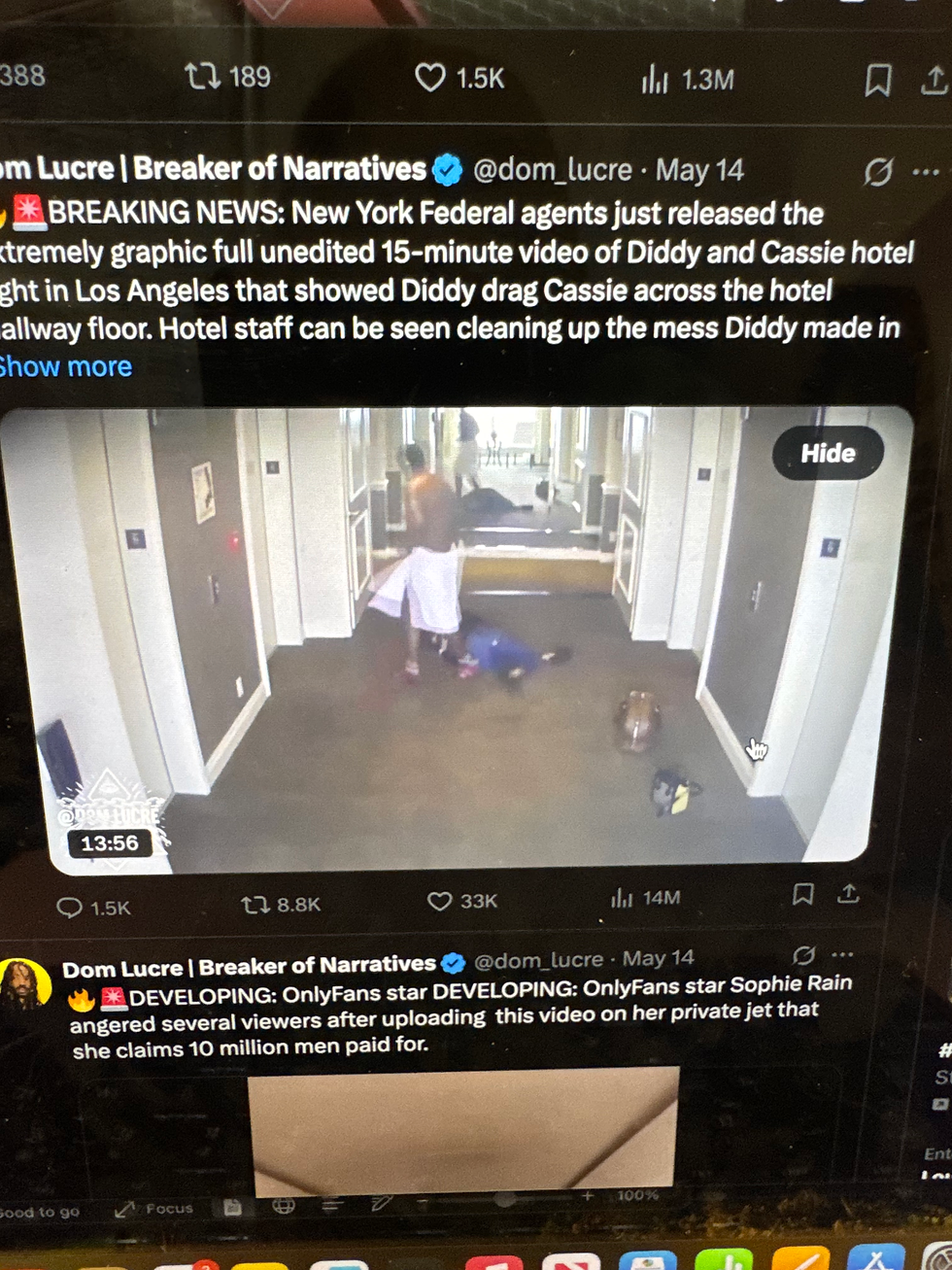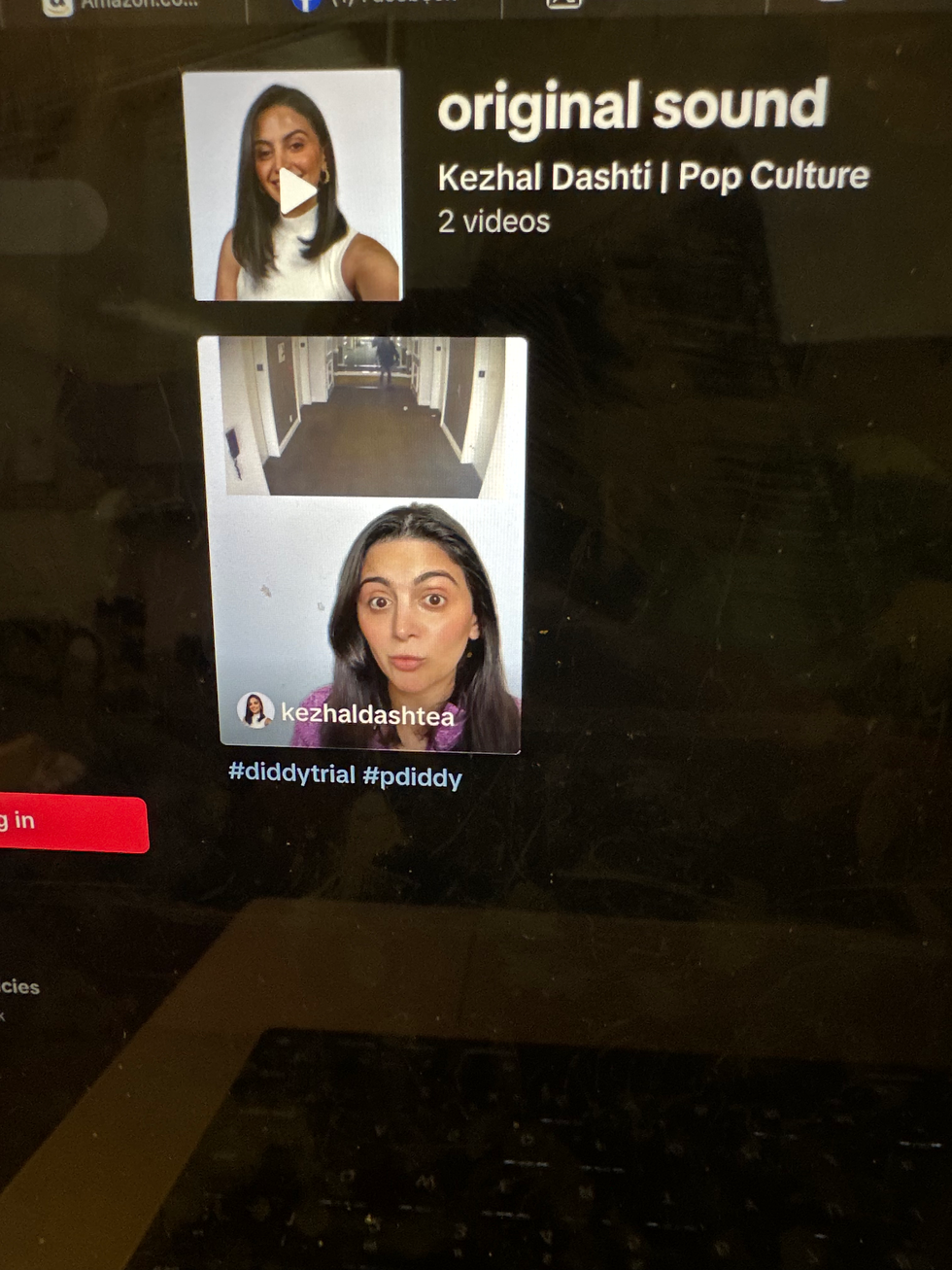Graphic Allegations and Viral Content: How Social Media Is Shaping Public View of Diddy’s Federal Trial
- Destiny Wiggins

- May 18, 2025
- 3 min read
Updated: May 21, 2025
The federal trial against Sean “Diddy” Combs has moved far beyond the courtroom, dominating social media feeds as new and graphic allegations emerge and are instantly echoed online. A viral May 14 tweet by X user Dom Lucre (@dom_lucre) claimed federal agents released a full 15-minute surveillance video of an alleged hotel altercation between Combs and singer Cassie Ventura.
The post quickly spread across platforms, gaining millions of views within hours.

This single post exemplifies the outsized role social media plays in modern court coverage. Despite federal courtrooms typically limiting or prohibiting video recordings, posts like these often serve as a primary source of information for online audiences. Many users who come across this type of content engage with it as breaking news, regardless of whether it is confirmed by official sources.
The tweet became a central point of online discussion, with users resharing the footage under hashtags like #CassieVideo, #DiddyTrial, and #FreakOffs. Many paired it with commentary or reactions, while others used it to create timelines or further examine details of the case. The video and its rapid spread, highlights the powerful role social media plays in the public’s consumption of legal proceedings.
An article by E! News reported new testimony alleging that Combs directed an escort to urinate on Ventura during a sex act, according to federal prosecutors. The allegation is part of a wider pattern prosecutors are seeking to establish, including claims of manipulation, abuse, and sex trafficking. The article, titled “Sean ‘Diddy’ Combs Made Escort Urinate in Cassie’s Mouth, Prosecutor Says,” includes direct quotes from federal court proceedings and details the prosecution’s efforts to establish a pattern of coercive control. Additionally, this news articles verifies social media reports of the case.
Social media engagement surrounding the case has continued to grow, with posts drawing in wide audiences across entertainment, true crime, and activist communities. New content appears daily, often using the ongoing trial as a central narrative point. Content creators on TikTok have also used trending audio and captions to highlight specific allegations mentioned in court. Multiple creators and journalist such as Kezhal Dashthi and Mona Kosar Abdi, have posted explainer videos breaking down the trial’s daily developments, frequently tagging legal and celebrity gossip accounts.

Additionally, it’s worth noting that Cassandra “Cassie” Ventura herself addressed the public directly following the leak of hotel surveillance footage in May 2024 ,nearly a year before the current federal trial. In a heartfelt Instagram post shared on May 23, 2024, Ventura responded to the footage, which appeared to show an altercation between her and Sean “Diddy” Combs in a Los Angeles hotel hallway.
Ventura’s message was shared widely across platforms, especially Instagram Stories and reels, and quickly went viral again during the opening week of the trial in May 2025. Screenshots of her caption have resurfaced in TikTok explainers, Twitter/X threads, and comment sections of media outlet posts, where users cite her words as powerful context for ongoing testimony.
Her post remains one of the few direct statements made by Ventura outside of legal filings and courtroom appearances, a rare moment of public confirmation that gave social media users what many perceived as “proof from the source.” It also added fuel to the online movement surrounding the trial, solidifying how digital platforms not only report stories in real time but also serve as archives of survivor voices, viral reactions, and the broader cultural response.


Comments